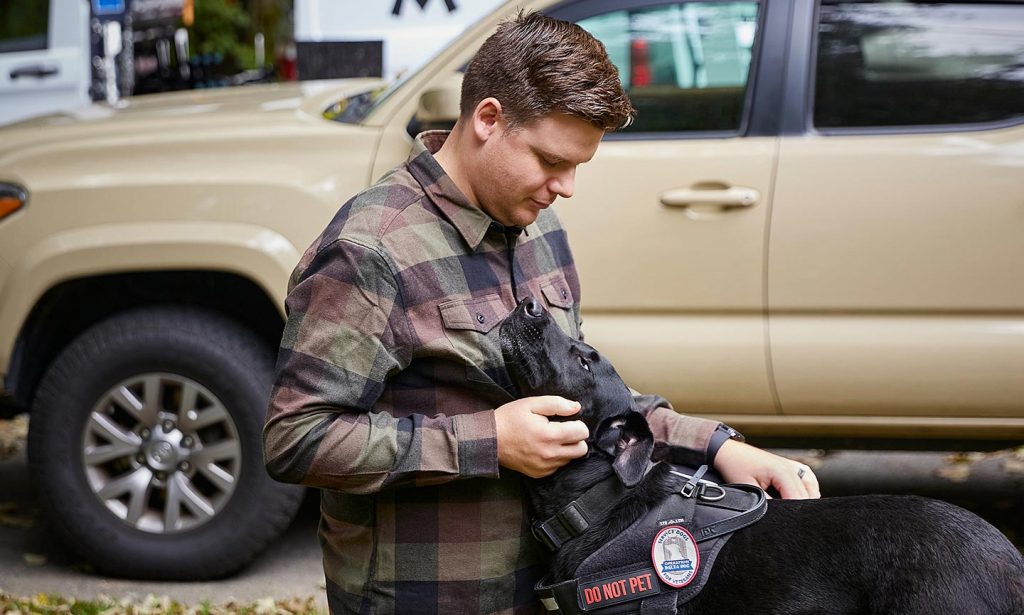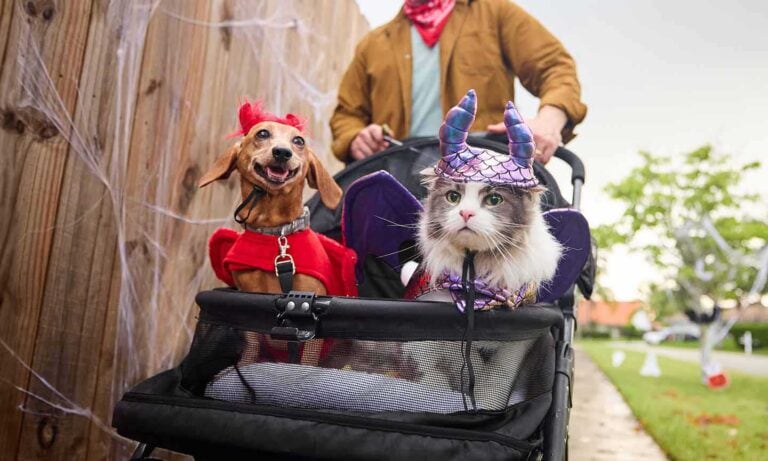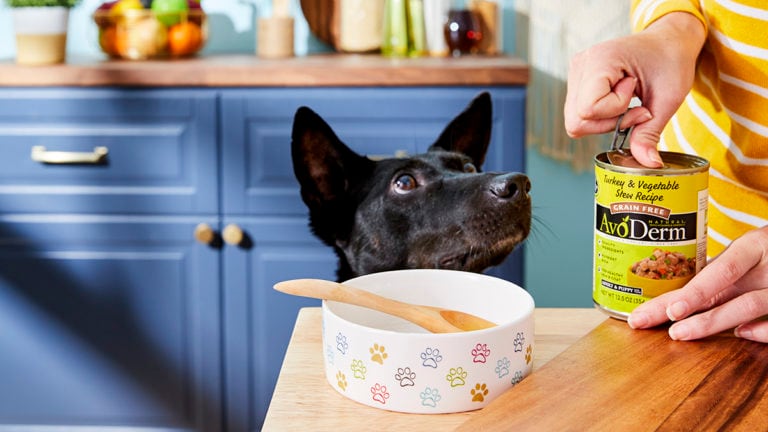Paul Coppola used to depend on fellow soldiers to cover him while he scanned for underground explosives with a metal detector. Now, he counts on his service dog, Dobby, to watch his back in a different way.
“He is my comfort, he is my safety, he's my backup,” Paul says. “He goes everywhere with me.”
After being rocked by a pair of explosions and losing a total of 17 Marines from his battalion during a 2011 engagement in Afghanistan, Coppola struggled with a traumatic brain injury and PTSD. Initially, he was reluctant to seek treatment, believing his wounds weren’t “bad enough” to require help. But being paired with Dobby, a 4-year-old black Lab mix trained by veteran organization Operation Delta Dog, helped him realize that he wasn’t just able to overcome that trauma—he deserved to.
“He’s given me my freedom back, really,” Paul says. “I have to admit the fact that he’s saved my life.”
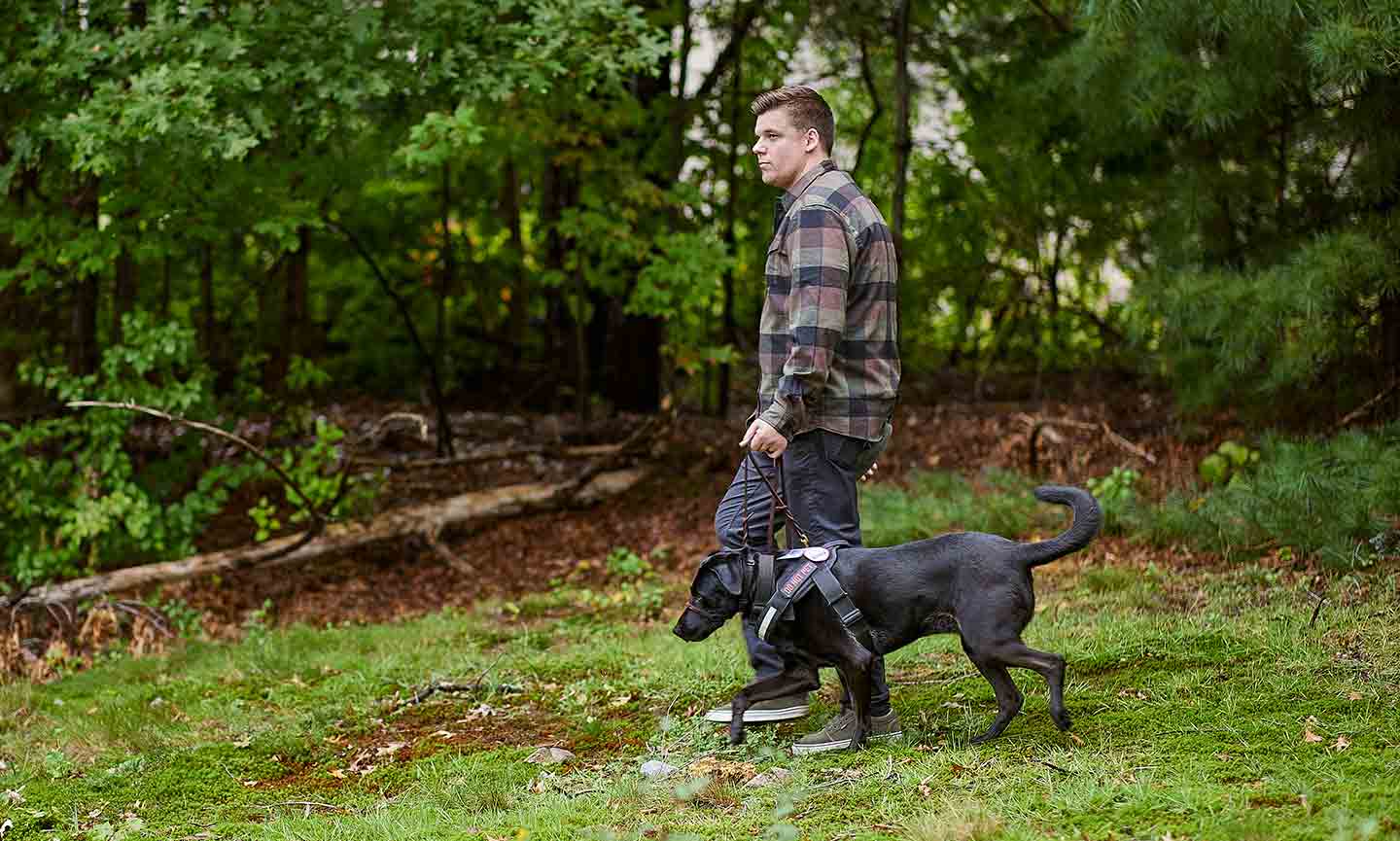
After being medically retired from the Marines in 2013, Paul lived with post-traumatic stress and traumatic brain injury, managing symptoms like chronic headaches, back pain and anxiety. He saw a speech therapist to help him overcome a stutter that emerged months after his deployment.
Because his injuries were invisible, Paul says, they were difficult to understand—both for himself and for others in his life. When his symptoms flared and he needed to take time off work as a safety officer at a nuclear power plant, he struggled with feelings of guilt and embarrassment.
“From my outward appearance, most people would probably think that I was perfectly fine,” he says. “But oftentimes, day-to-day, being in a social environment—going to the grocery store, going to the mall or going to a park and spending time with my family—is very hard for me just because I'm not comfortable, or at least I wasn't comfortable before.”
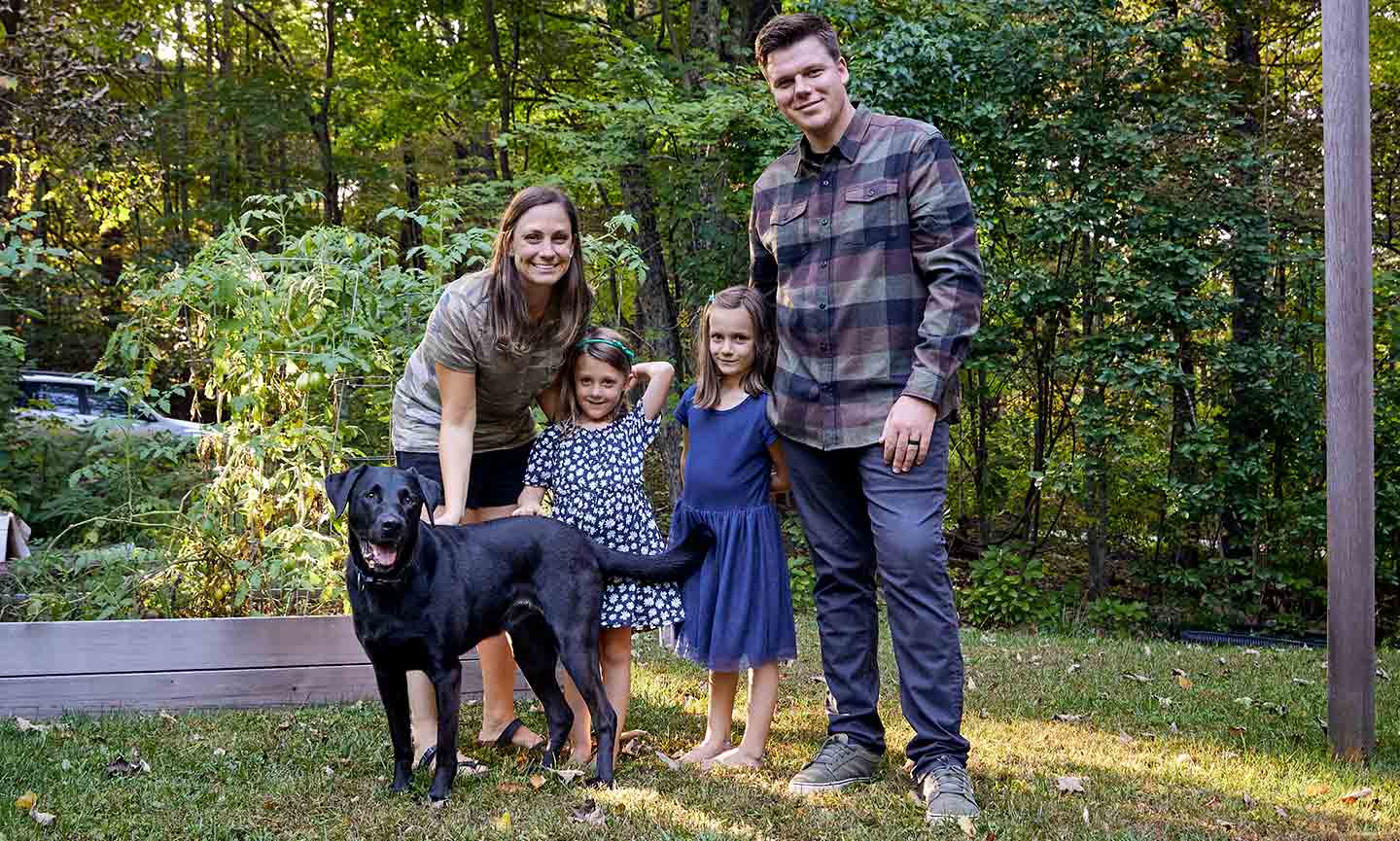
It took the support of Paul’s family, a community of like-minded veterans, and Dobby to get Paul on the path to recovery. In the summer of 2019, at his wife Sarah’s suggestion, Paul reached out to Operation Delta Dog, a nonprofit based in Hollis, New Hampshire, that trains service animals for veterans. In fact, Sarah filled out most of the Operation Delta Dog application on his behalf and gently encouraged him to complete it.
“He thought that everybody else was worse off than he was, and that they deserved more than he did,” Sarah says. “I had to remind him: ‘You are worthy of this and these organizations exist for people like you.’”
Operation Delta Dog works with a network of foster and rescue services throughout the southeastern U.S. to find animals who have the right temperament to become service dogs, then trains the dogs and pairs them with veterans in need. The organization works strictly with rescue dogs, and if a dog doesn’t meet service animal standards, they’ll still work to find families to adopt the dog as a pet.
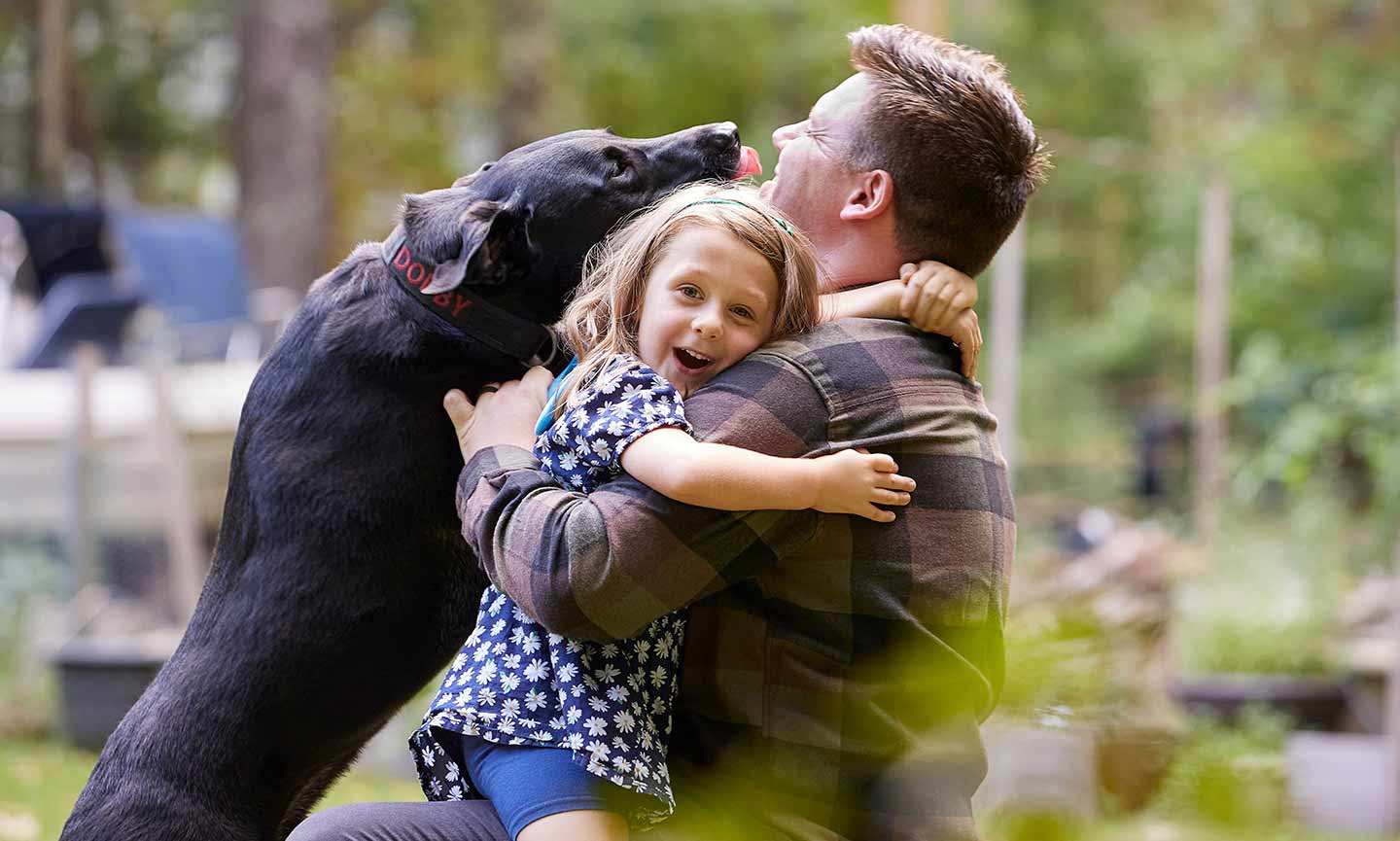
When Operation Delta Dog paired Paul with Dobby, the connection was instant. At their first meeting, Dobby laid at Paul’s feet and rolled onto his back for a belly rub, which Paul took as a sign that the dog would be friendly enough to fit into life with his wife and two young daughters. Plus, he felt a positive difference in his mood and anxiety levels as soon as they began training together. Dobby came home for good in December 2019.
“I'll never forget the first day that he went out with Dobby after Dobby came home to live with us,” Sarah says. “It was Christmas time, and he went out and did a bunch of shopping on his own and said he was going to go to a bunch of stores.” In the past, Paul’s anxiety would’ve prevented him from spending a day shopping in multiple places. “I was like, ‘Are you sure you want to do this?’ And he was like, ‘Yeah, I'm going to go for it.’”
Today, Dobby is there to help Paul in a variety of ways. He’s trained to open accessible doors, and to retrieve items for Paul, who has back issues that sometimes prevent him being able to crouch to pick things up himself.
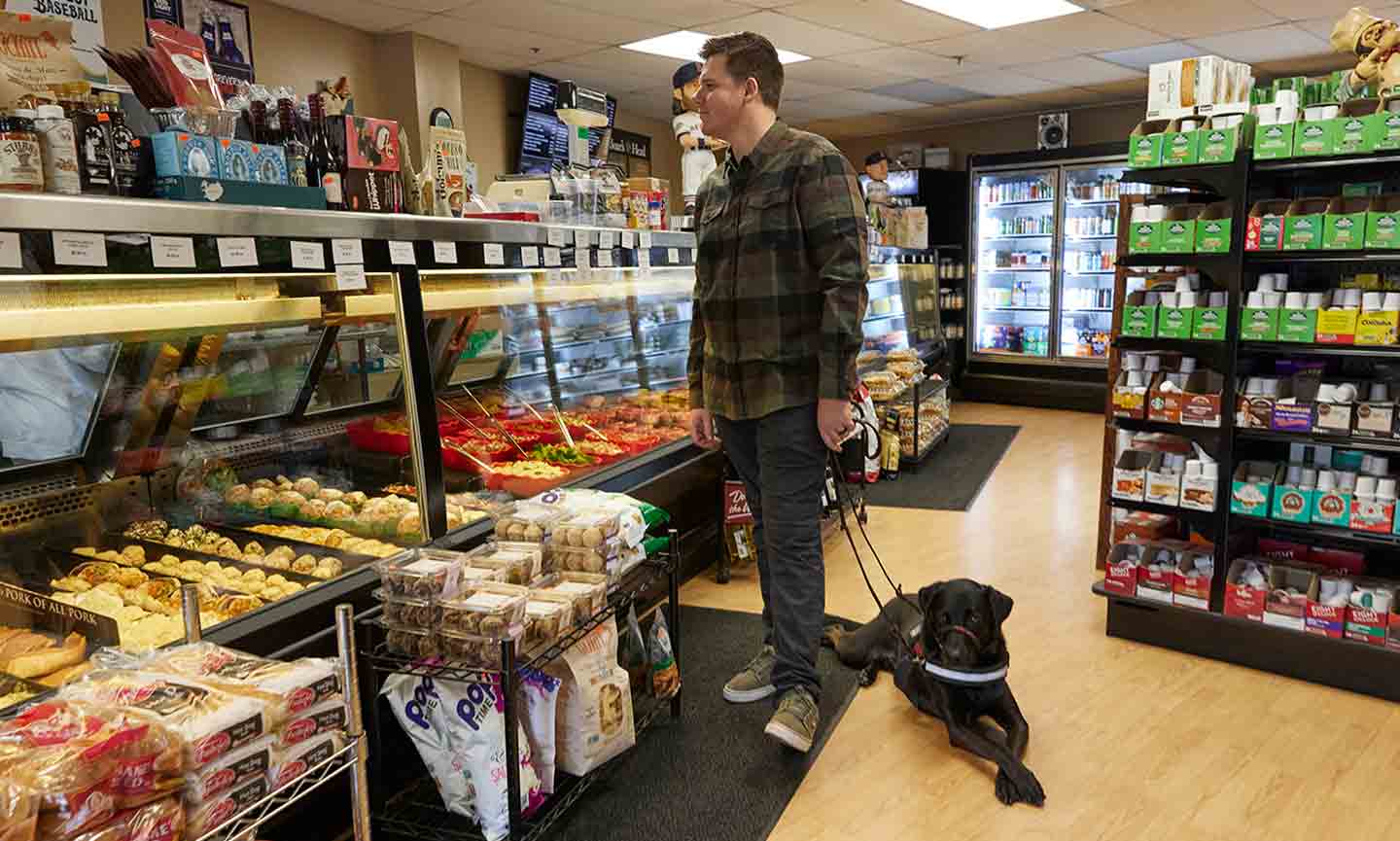
But his biggest impact, Paul says, is as a source of comfort. Dobby’s companionship gives Paul something to focus on other than his anxiety in public places. As a rescue found on the streets of Atlanta, Georgia, Dobby has a history of physical abuse and suffers from anxiety much in the same way Paul does. That mutual understanding has strengthened their bond.
“It helps me that we kind of have the same baggage,” he says. “Being able to feel as though when I'm out in public and he's starting to get a little anxious that I can provide for him and return the favor just takes my attention off of whatever is making me uncomfortable.”
Named after the house elf Dobby from J.K. Rowling’s Harry Potter series (because he steals socks), Dobby is both a service dog and a family dog. When he’s wearing his service vest, he knows he has a role to fulfill on Paul’s behalf—a distinction that Paul occasionally has to remind his daughters, Ellen, 7, and Emma, 5, who are eager to play with the pup 24-7.
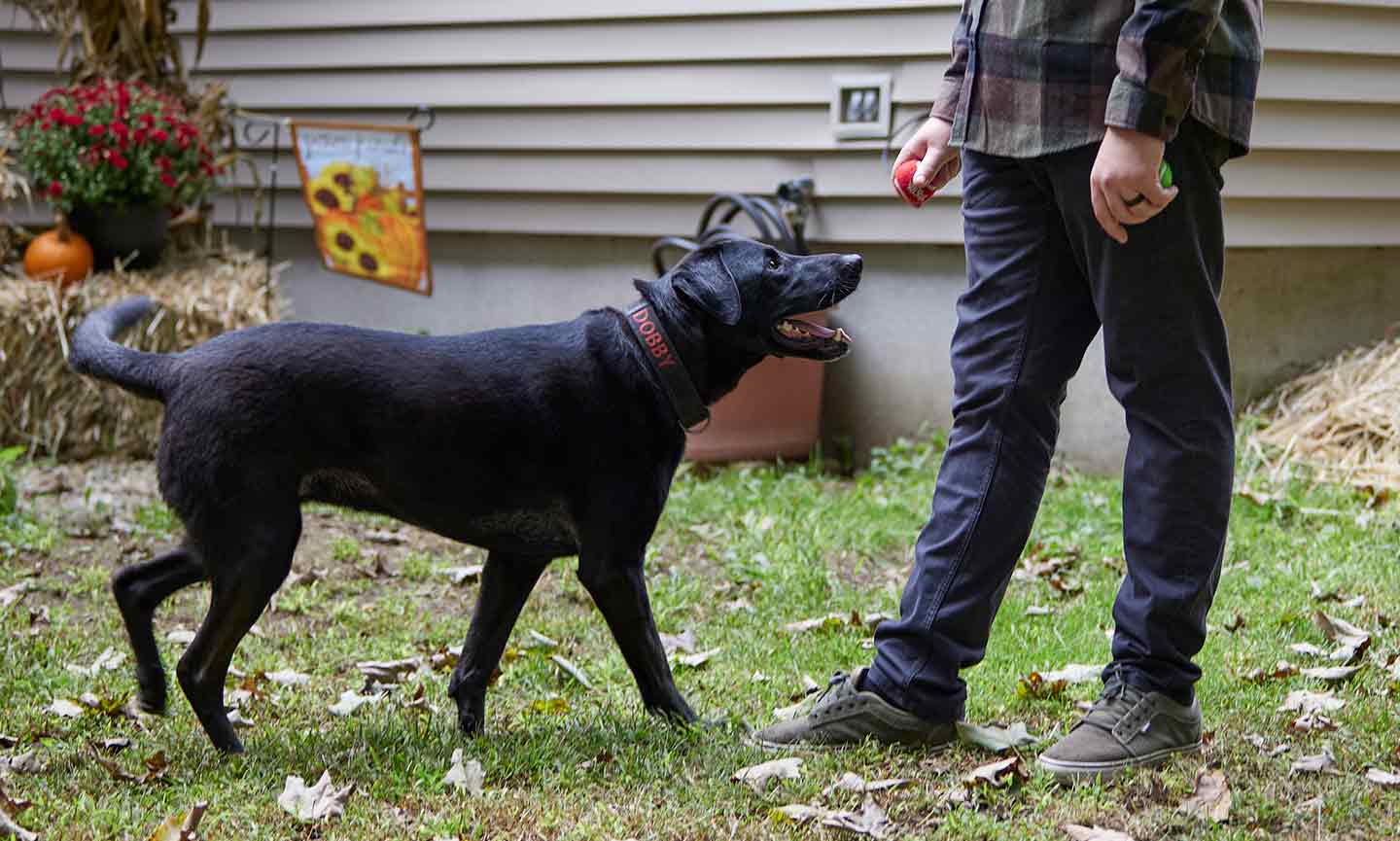
Dobby, however, seems to instinctively know when Paul needs him—even when he’s not technically on duty.
“Oftentimes if I come home and I've had a bad day, he can just sense it and he'll lay down at my feet for me to rub his belly,” he says. “And just having that emotional connection with him helps in those scenarios.”
Vets typically spend about 18 months training with Operation Delta Dog after being paired with a service dog, to ensure they have a solid working relationship and strong bond. In spring of 2021, as his training with Operation Delta Dog was nearing its end, Paul realized he didn’t want to leave the group.
“I knew before I graduated that I wanted to stick around,” he says. “It was just a matter of what I could do, coming up with a way for them to let me stay.”
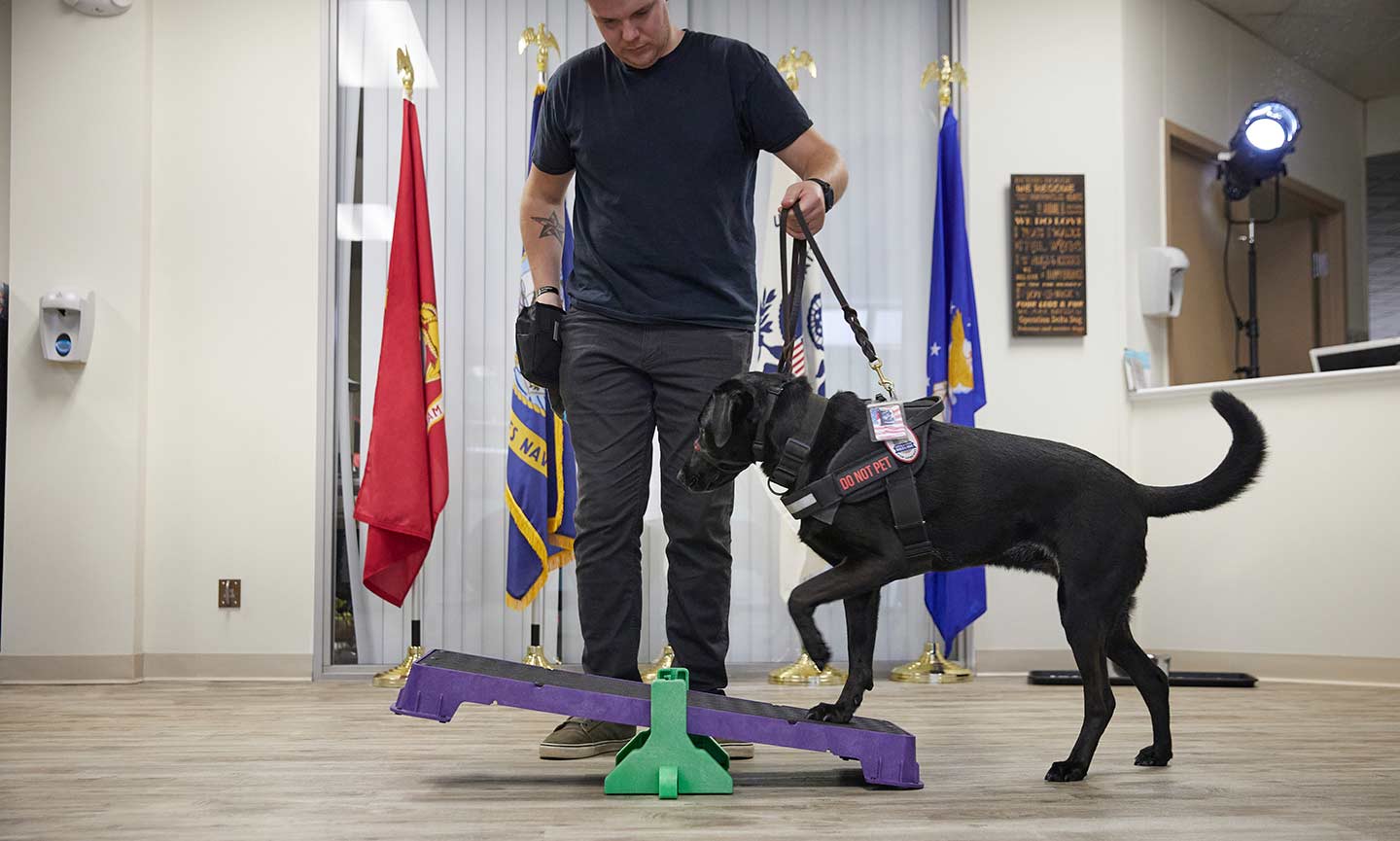
He noticed that participants in the program sometimes returned their service dogs because they’d never had a pet before. So, he proposed a new volunteer position focused on helping his fellow veterans feel less overwhelmed by having a service dog in their life for the first time. Today, Paul mentors new vets in the program to help them learn to accept and care for their new pets—and serves as living proof of the positive effect service dogs can have in the lives of veterans.
“Just being a voice and being reachable—as a veteran, that goes a long way,” he says.
In the meantime, his training with Dobby continues. It’s possible that Paul’s symptoms will become more severe over time, or that certain tasks will become more challenging.
Paul believes it’s essential that he and Dobby keep evolving as a working pair, and he knows that the staff at Operation Delta Dog will be there to help. In fact, Operation Delta Dog stays in touch with all of its graduates, many of whom volunteer for the organization in various capacities.
Want to Support
Operation Delta Dog?
Check out their Wish List, where you can send pet products they need directly to the group.
Read More
- How Dog Lover Maria Ducasse Created a Community to Keep Pets and Their Parents Together
- Canine Coach Chrissy Joy on the Transformative Benefits of Dog Training: “It Changes Lives”
- These Photographers Are Helping Thousands of Shelter Animals Find Homes
- 5 Military Working Dogs Worthy of Your Salute
- These 100 Military Dog Names Are an Epic Salute to Your Pup
Share:
